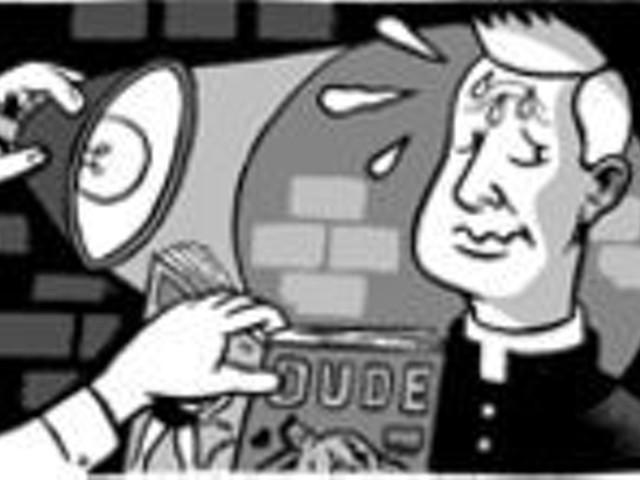Heathcliff Huxtable, Philadelphia
Yes, there is a generation gap. But not before the civil rights movement, during which time black preteens and older age groups joined young leaders like Dr. Martin Luther King Jr. and Ralph Abernathy, etc., to overturn the "Separate But Equal" law.
Prior, blacks living in white townships were thrown together in areas regarded as "colored sections," regardless of profession. From these locations they attended black elementary schools, followed by black colleges and universities. Despite superb academic skills, they were denied jobs in white corporate America. Employment among them was limited to porters and schoolteachers. In most cases teachers taught students from "hand-me-down" books and also disciplined the disobedient. So good were these teachers that their students at eighth-grade levels were ready to face the world.
Seemingly, the person asking the question has a lost sense of direction. In all probability he is a holder of a Ph.D., Master's or B.A. who received said degrees at some white college or university, without contributing anything to the cause, and visits mostly black schools to speak to students about how he became successful, his main thrust being, "A mind is a terrible thing to waste." In other words: Get an education.
Well, blacks have been educated for years, but for years have not gotten good jobs. History has recorded that anything whites have done, blacks have been there, done that. Poverty-wise it has been because of mass job denials. The only equal-opportunity employer that blacks had was bondage. There, the real "Ph.D." was displayed by people who were "Poor", "Desperate" and "Hungry," with white masters overseeing them.
Not until black teachers and people like the person that asked the question stand up and demand the educational system to place black kids' great history in elementary-school curriculum, as well as challenge the government about providing good jobs for them after graduation as an added incentive -- until this happens young blacks will never respect older blacks, because of feeling that they stand for nothing.
Prince Joe Henry, one of professional baseball's original "clowns," was an all-star infielder for Negro League baseball teams in Memphis, Indianapolis and Detroit throughout the 1950s. But up until the late 1940s, Prince Joe didnt know anything about the Negro Leagues. His knowledge of organized baseball was limited to the Cardinals and Browns games he attended during his preteen years at Sportsmans Park, accompanied by lifelong buddy Eugene "Gene" Crittendon, who could pass for white.
Perhaps Henrys most vivid memory of those games: Upon entry, white ushers would politely escort the boys to a small section of the left-field stands reserved for "Colored." After climbing past several tiers of bleachers, theyd arrive at their stop, rows and rows behind their white counterparts.
Even at a young age, the boys were conscious of the double standard -- and determined to vent their disdain. The opportunity would arise with the urge to urinate. Rather than head for the latrine, the boys would edge their way to the front of the section and let fly. As the liquid foamed its way down the concrete steps toward the white kids, Henry and his pal would ease back and relax, politely rooting for the visiting team to beat the hell out of the Browns or the Cards.
After all, Henry and Crittendon hailed from Brooklyn, Illinois, a small, predominantly black township just east of the Mississippi River. So hospitable were the residents of Brooklyn that they were known to take in a rank stranger, treat him to breakfast, lunch, supper and a night out on the town -- and afterward, if he messed up, treat him to a good ass-whippin'.
Prince Joe Henry, one of professional baseball's original "clowns," was an all-star infielder for Negro League baseball teams in Memphis, Indianapolis and Detroit throughout the 1950s. But up until the late 1940s, Prince Joe didn?t know anything about the Negro Leagues. His knowledge of organized baseball was limited to the Cardinals and Browns games he attended during his preteen years at Sportsman?s Park, accompanied by lifelong buddy Eugene "Gene" Crittendon, who could pass for white.
Perhaps Henry?s most vivid memory of those games: Upon entry, white ushers would politely escort the boys to a small section of the left-field stands reserved for "Colored." After climbing past several tiers of bleachers, they?d arrive at their stop, rows and rows behind their white counterparts.
Even at a young age, the boys were conscious of the double standard -- and determined to vent their disdain. The opportunity would arise with the urge to urinate. Rather than head for the latrine, the boys would edge their way to the front of the section and let fly. As the liquid foamed its way down the concrete steps toward the white kids, Henry and his pal would ease back and relax, politely rooting for the visiting team to beat the hell out of the Browns or the Cards.
After all, Henry and Crittendon hailed from Brooklyn, Illinois, a small, predominantly black township just east of the Mississippi River. So hospitable were the residents of Brooklyn that they were known to take in a rank stranger, treat him to breakfast, lunch, supper and a night out on the town -- and afterward, if he messed up, treat him to a good ass-whippin'.
Direct questions on any and all topics to [email protected]. If we don't like yours, we'll hit Joe with our own.





